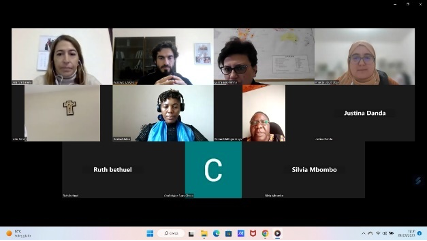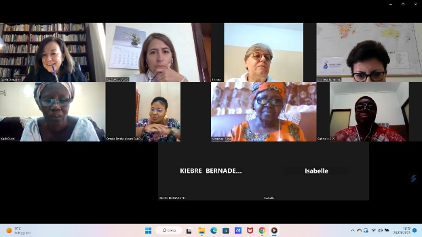One more step on our way in Africa
- observatorioumofc
- Apr 4, 2023
- 2 min read
25 March 2023
Last Thursday, March 23, we completed an important stage of the project in Africa, carried out from the World Observatory of Women (WMO), focused on Violence and Discrimination against Women.
From November to March of this year, we listened to 110 African women experts, representing 36 countries, who shared in groups, their valuable contribution in the territory. Among them, we have 59 lay women and 51 religious women, since it is our goal to form a network among all the religious institutions and congregations that have been handling for many years, the divers aspects of violence and discrimination against women in the various African communities.
This first step of listening allowed us to identify the common problems that many countries of the neighbouring continent are experiencing today. Among them: forced and early marriage; loneliness and abandonment; lack of access to justice; human trafficking; economic violence, among the many other types of violence exposed and the lack of access to quality education and training for work.
We summarize some testimonies compiled at these meetings among many others, that give an account of the reality: "Early marriage of girls before the age of 18 is allowed, which causes psychological violence and in many cases leads to death. They are not allowed to marry a man of their choice" (NIGERIA); "Women are meant to be silent" (ZAMBIA); "If you have not yet been educated, you suffer more violence and abuse" (UGANDA); "Women cannot inherit and have no property" (TANZANIA).
It was also possible to collect various advices to reverse the suffering of so many women in Africa. In this sense, these are the recommendations that were most frequently exposed: the importance of prevention and raising continuous awareness, the network workforce; the need to change some laws; the value of women’s empowerment for their greater autonomy; the key to greater access to education and the scope of public policies that favour women.
Listening is the first step. For this reason, we consider this first stage of our project in Africa to be so valuable, that now continues with the challenge of transforming lives.







Comments